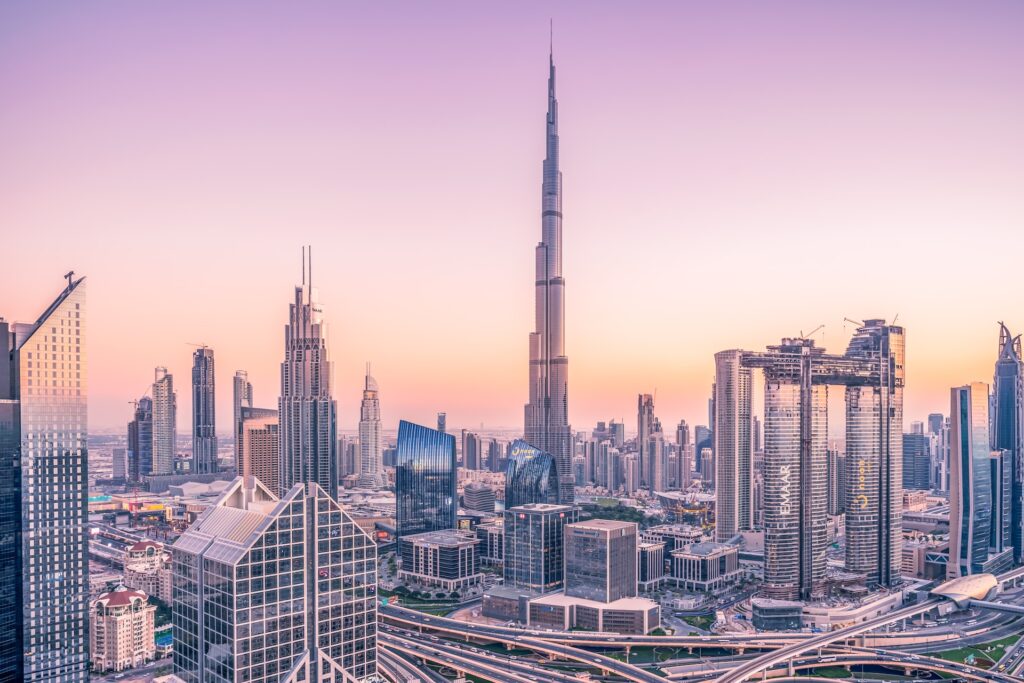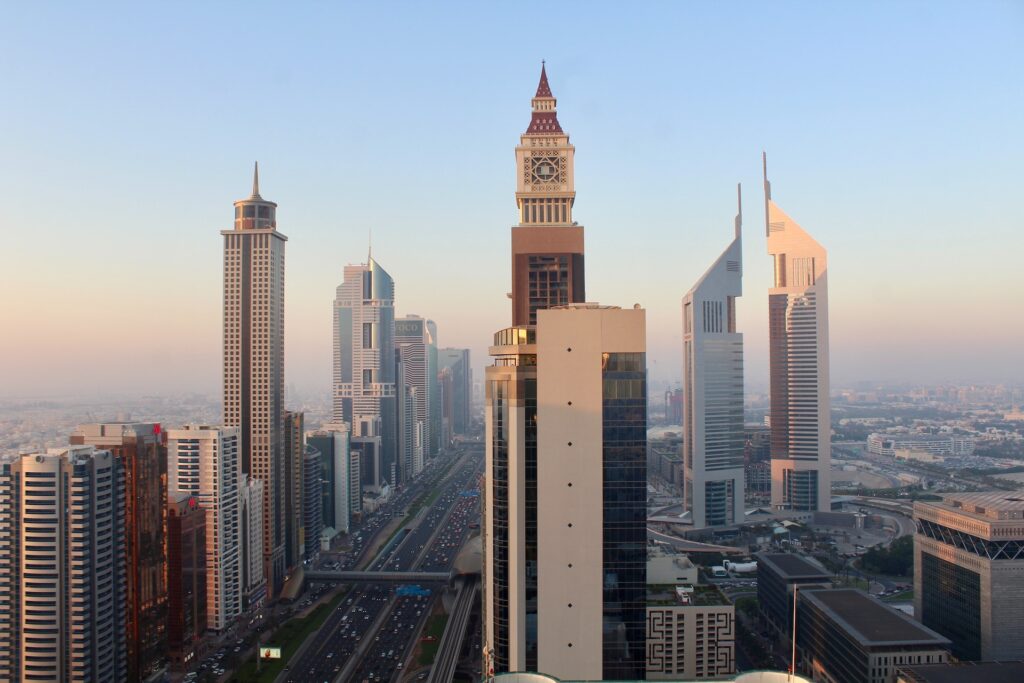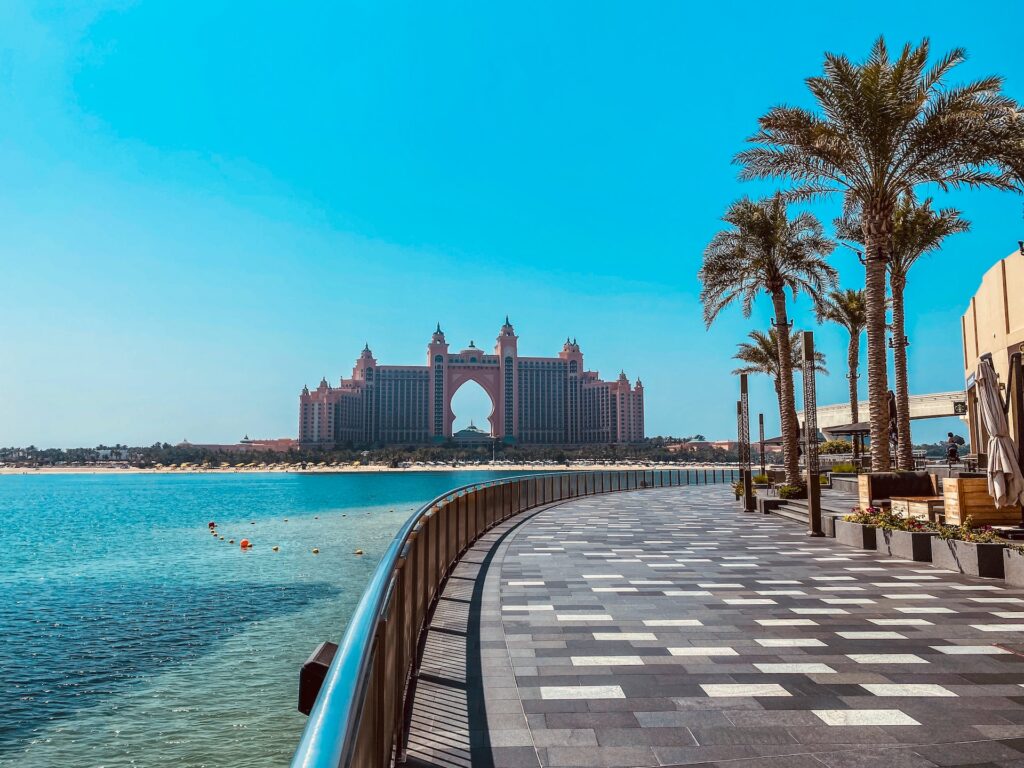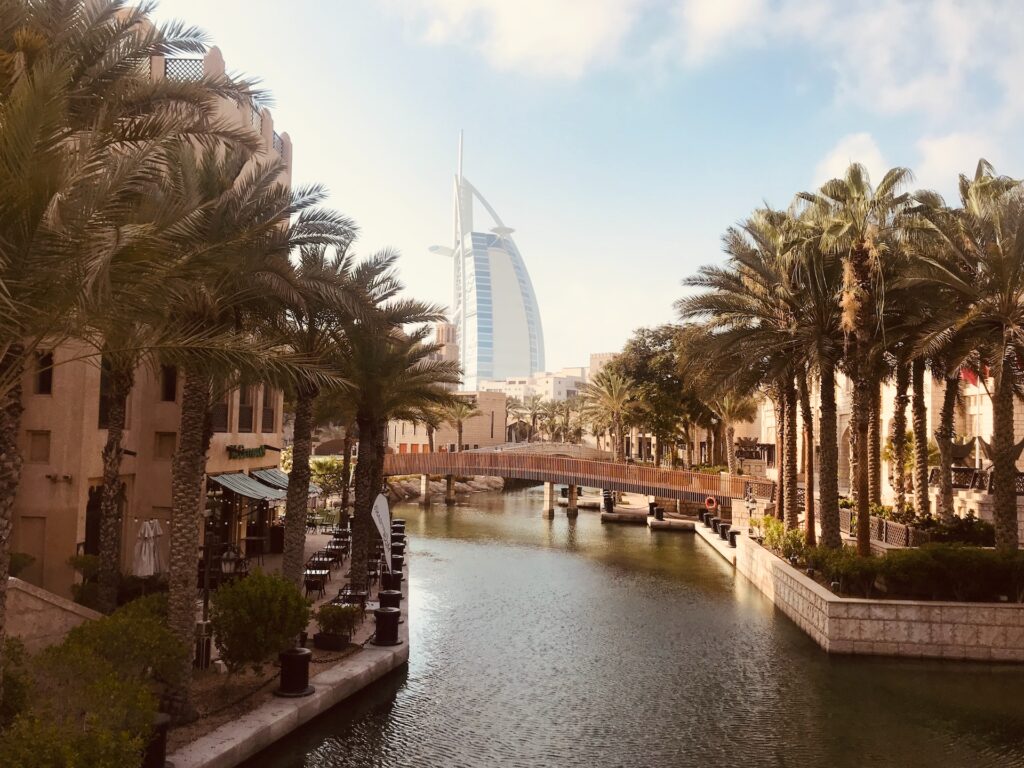United Arab Emirates
The United Arab Emirates or simply the Emirates is a country in Western Asia (the Middle East). It is located at the eastern end of the Arabian Peninsula and shares borders with Oman and Saudi Arabia, while having maritime borders in the Persian Gulf with Qatar and Iran. Abu Dhabi is the nation’s capital, while Dubai, the most populated city, is an international hub.
The United Arab Emirates is an elective monarchy formed from a federation of seven emirates, consisting of Abu Dhabi (the capital), Ajman, Dubai, Fujairah, Ras Al Khaimah, Sharjah and Umm Al Quwain. Each emirate is governed by a ruler and together the rulers form the Federal Supreme Council. The members of the Federal Supreme Council elect a president (as of 14th May 2023, His Highness Sheikh Mohamed Bin Zayed Al Nahyan) and vice president (His Highness Sheikh Mohammed bin Rashid Al Maktoum) from among their members. In practice, the ruler of Abu Dhabi serves as president while the ruler of Dubai is vice president and also prime minister. In 2013, the country had a population of 9.2 million, of which 1.4 million were Emirati citizens and 7.8 million were expatriates. As of 2023, the United Arab Emirates has an estimated population of roughly 10.2 million.
The area which is today the United Arab Emirates has been inhabited for over 125,000 years. It has been the crossroads of trading for many civilizations, including Mesopotamia, Persia, and India.
Cultural Tours
Cultural tours offer a rich and immersive experience into the heritage and traditions of a particular region or country. These tours can include visits to historical landmarks, museums, galleries, and other cultural institutions, as well as interactions with local people and participation in traditional activities and ceremonies. Cultural tours provide an opportunity to gain a deep understanding and appreciation of a culture’s art, music, literature, cuisine, and customs. They can also broaden one’s perspective and deepen one’s understanding of the world by exposing travelers to different ways of life and ways of thinking.
One of the most significant benefits of cultural tours is the opportunity to learn about and appreciate cultural diversity. By experiencing different cultures firsthand, travelers can develop a greater understanding and empathy for people from different backgrounds. Cultural tours can also promote cultural exchange, as they provide an opportunity for travelers to engage with local people and learn about their way of life. By fostering cultural understanding and respect, cultural tours can contribute to a more peaceful and interconnected world. Additionally, cultural tours can be a great way to support local communities and economies by spending money on local businesses and supporting cultural preservation efforts.




- Jan
- Feb
- Mar
- Apr
- May
- Jun
- Jul
- Aug
- Sep
- Oct
- Nov
- Dec
